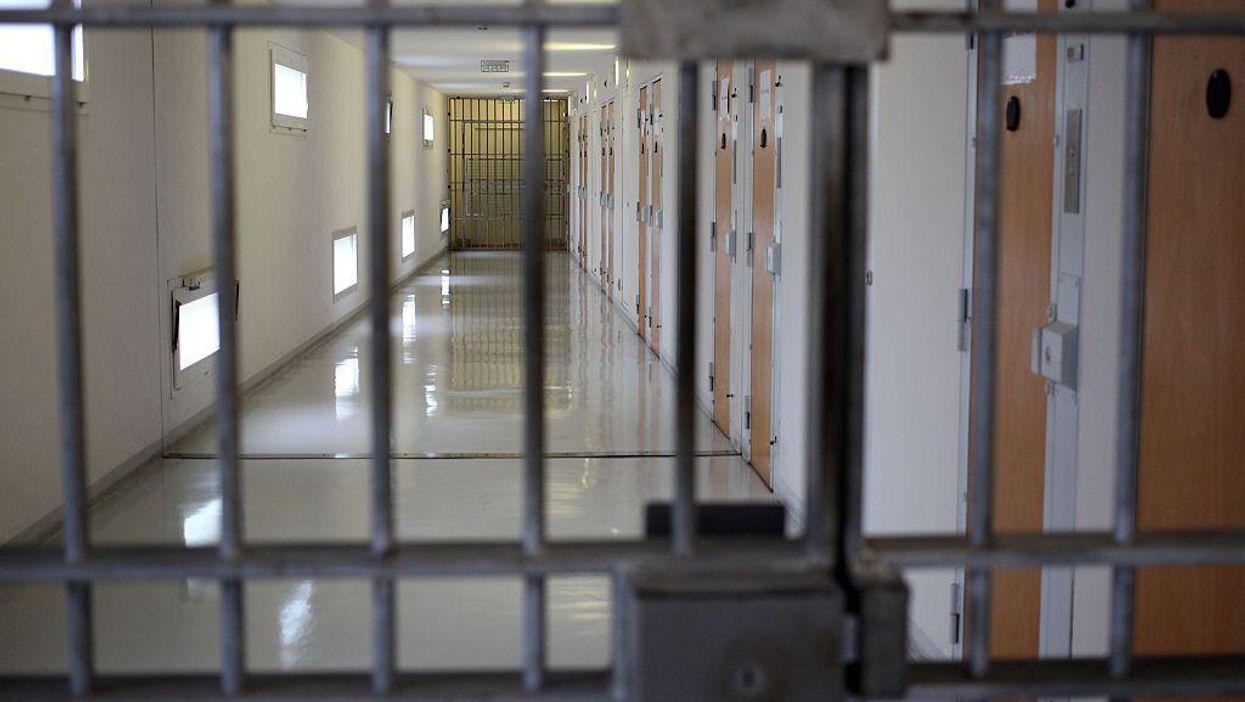
RICHARD BOUHET/AFP via Getty Images

A man was wrongly arrested by authorities for a crime committed by someone else, locked up in a mental hospital for over two years, and forced to take psychiatric drugs in a tragic case of mistaken identity, according to a report from the Associated Press. Meanwhile, the actual criminal was reportedly already in jail.
Joshua Spriesterbach, 50, was said to have fallen asleep on a sidewalk while waiting for food outside a Honolulu homeless shelter in 2017. The homeless man was awakened by police officers, and he believed he was being arrested for violating the city's ban on sitting or laying down on public sidewalks. Instead, he was allegedly arrested for a crime he didn't commit.
Police mistook Spriesterbach for a man named Thomas Castleberry, who had a warrant out for his arrest for violating probation in a 2006 drug case. The Hawaii Innocence Project, a self-described "law clinic and non-profit with a mission to free prisoners who are factually innocent but who have been wrongfully convicted," claimed that Spriesterbach never met Castleberry, and never claimed to be the fugitive the police were searching for.
Spriesterbach pleaded for his innocence, but instead of his release, he was committed to the Hawaii State Hospital, which provides "inpatient psychiatric services for court-ordered individuals."
For two years and eight months, hospital staff and Spriestersbach's own public defenders refused to believe that he wasn't the man who police said he was. When Spriesterbach claimed that he wasn't Thomas Castleberry, the staff at the facility forced him to take psychiatric drugs, according to a petition filed in court on Monday asking a judge to vacate the arrest and correct Joshua Spriestersbach's records.
"Yet, the more Mr. Spriestersbach vocalized his innocence by asserting that he is not Mr. Castleberry, the more he was declared delusional and psychotic by the H.S.H. staff and doctors and heavily medicated," the petition reads. "It was understandable that Mr. Spriestersbach was in an agitated state when he was being wrongfully incarcerated for Mr. Castleberry's crime and despite his continual denial of being Mr. Castleberry and providing all of his relevant identification and places where he was located during Mr. Castleberry's court appearances, no one would believe him or take any meaningful steps to verify his identity and determine that what Mr. Spriestersbach was telling the truth – he was not Mr. Castleberry."
"Part of what they used against him was his own argument: 'I'm not Thomas Castleberry. I didn't commit these crimes. ... This isn't me,'" Spriestersbach's sister, Vedanta Griffith, told The Associated Press. "So they used that as saying he was delusional, as justification for keeping him."
Finally, one psychiatrist at the Hawaii State Hospital reportedly listened to Spriesterbach, and quickly found that he was not Thomas Castleberry. The psychiatrist did a few Google searches and made some phone calls to confirm that Spriestersbach was on another island when Castleberry was initially arrested, according to court documents.
The real Thomas Castleberry has been incarcerated in an Alaska prison since 2016.
When authorities realized their mistake, they quietly released Spriesterbach from the mental hospital in January 2020 with just 50 cents to his name, according to the report.
Spriestersbach's attorneys contend that the trainwreck of injustice could have easily been avoided if law enforcement simply compared the two men's photographs and fingerprints.
The Hawaii Innocence Project said the police, state public defender's office, state attorney general, and the state hospital "share in the blame for this gross miscarriage of justice."
Hawaii Public Defender James Tabe, Gary Yamashiroya, special assistant to the attorney general, and Matt Dvonch, a spokesman for the Honolulu prosecuting attorney's office, declined to provide the AP with a comment regarding the Spriesterbach case.
Spriestersbach, who now lives with his sister in Vermont, declined to comment on his stint at the Hawaii State Hospital.
Griffith said to this day, her brother is "so afraid that they're going to take him again."